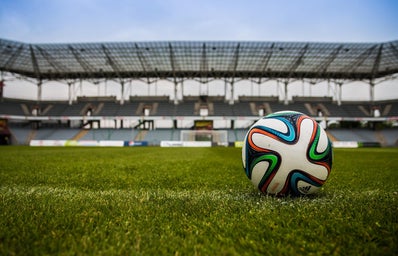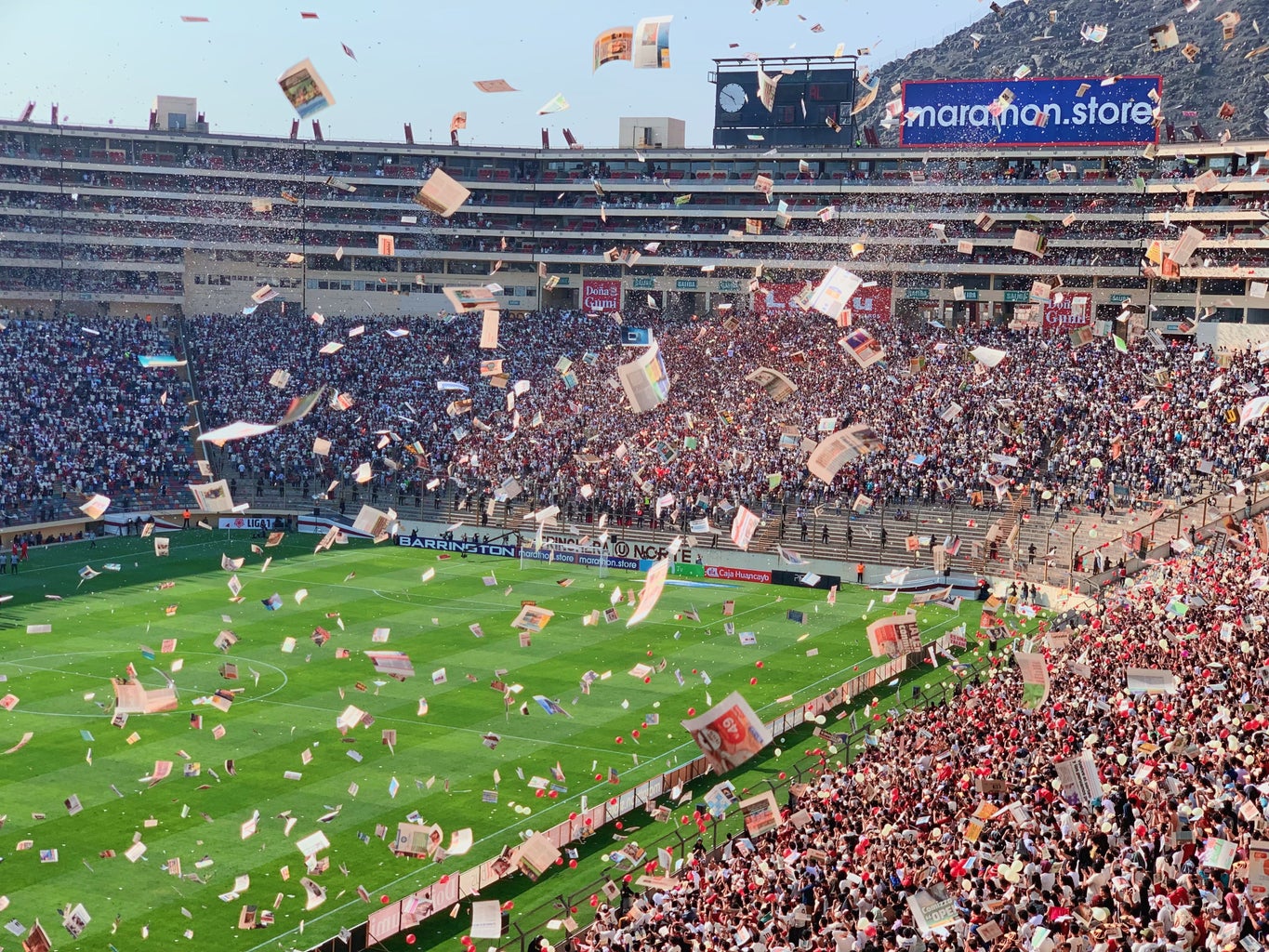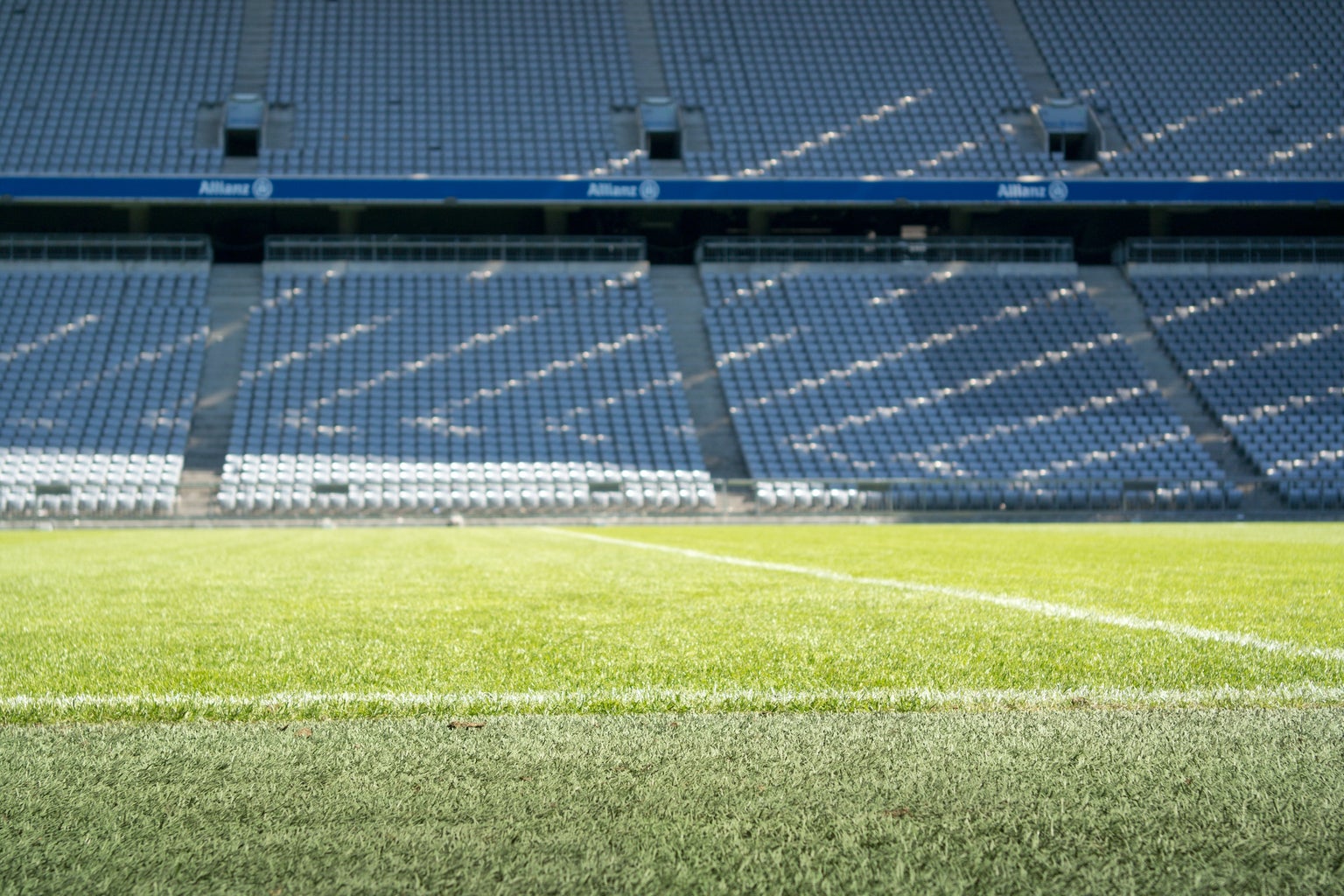I have never watched the World Cup before. I never really cared for soccer in general. Watching grown adults chase a ball from one side of the field to another for practically 2 hours never interested me. I tried once, for the sake of my friend who is a huge soccer-head, but I quit mid-game of a British team I can’t quite remember.
Fast forward to the Qatar World Cup and my dedicated sister had decided she was going to wake up at five in the morning (EST) to watch Saudi Arabia versus her favorite team, Argentina. My mom laughed at her the night before. You don’t need to watch it, she smiled, I could tell you the results myself. Apparently, the results were a given, they were obvious, and it was exactly why my sister wanted to watch. To see Messi win. No one saw it coming when Saudi Arabia won 2-1, with a beautiful second goal, which broke the 36-game streak Argentina carried.
The unexpectedness of that game was what made me start watching, but the pride and love I saw in the Moroccan national team was what made me continue.
Morocco was fun to watch. Their Simeone-style play, En-Nesyri’s record-breaking high jump (in the history of the World Cup), and their on-field chemistry which frustrated opposing European giants made it all the more entertaining. However, the growing attachment I felt towards the team went way beyond their great play. The team represented me in all the ways I have never felt represented before.
Remember me; I will remember you. And thank Me, and never be ungrateful
(Quran 2:152)
No matter what they did or what series of events unfolded, the Muslim players expressed acts of worship in the most beautiful of ways. Not us, it’s Allah, players Sabiri and Aboukhlal point to the sky after a win against Belgium. To celebrate, Aboukhlal prostrates, knees and hands and forehead pressed into the grass. This act is called sujood al-shukr, prostration of gratitude. Their humility, their gratitude, their remembrance of Allah remains at the forefront of their minds. It is shown time and time again, when they win against Spain, and the players line up shoulder to shoulder and let their knees fall to the floor, their heart above their mind. And again when they win against Portugal. And again when they lose to France. Even in their grief, in their ultimate defeat, when their hard work falls short, they remember and thank Allah in all His glory.
Thuma Umak
The saying thuma umak, thuma umak, thuma umak, comes from an Islamic hadith which means honor your mother, honor your mother, honor your mother. The mothers of the Moroccan players sat on the sidelines as their first and loyal cheerleaders, who embraced them when they won and embraced them when they lost. There could not have been a better display of honoring your mother, than when Spanish-Moroccan defender Hakimi ran to his mother for her kisses to celebrate his final penalty against Spain, eliminating his birth country and taking Morocco to the quarterfinals. There could not have been a better display of honoring your mother, than when French-Moroccan forward Boufal danced with his mother on the side of the pitch after winning a game against Portugal, holding her hands, and fixing her hijab delicately. There could not have been a better display of honoring mothers when the players hugged their own and each other’s, and in return, were greeted with the same love.
Ethnic Pride
Many of the Moroccan players were born and raised outside of Morocco, so choosing their parents’ homeland over their own was odd to most people. But their choice to represent a national team, as Dutch-Moroccan forward Ziyech puts it, “is not done with your head, but with your heart.” In an interview with Vogue, Hakimi describes it as though “you play for your grandfather and their grandfathers.” As such, they have captured the hearts of all Moroccans, Africans, and Arabs alike. In every game, the red and green shone brightly on them, and at the end of every celebration, they proudly sported the Moroccan flag over their shoulders. Amazingly, they became the first African country to reach the World Cup semi-finals. And when they lost, they shared their gratitude for Morocco on Instagram and visited their homeland shortly after, where they were welcomed with all the love and pride they deserve.
–
It is evident that I am nostalgic for the World Cup. I miss watching the shared joy between teammates and their parents and fans. I miss seeing the blatant expression of Muslim and African values. I miss watching grown adults chase a ball from one side of the field to another for 2 hours. Despite it all, I feel an utmost gratitude for the Moroccan team for representing me in a way I never thought I would see myself represented. I look forward to seeing them again in 2026. And as always, dima Maghreb.





